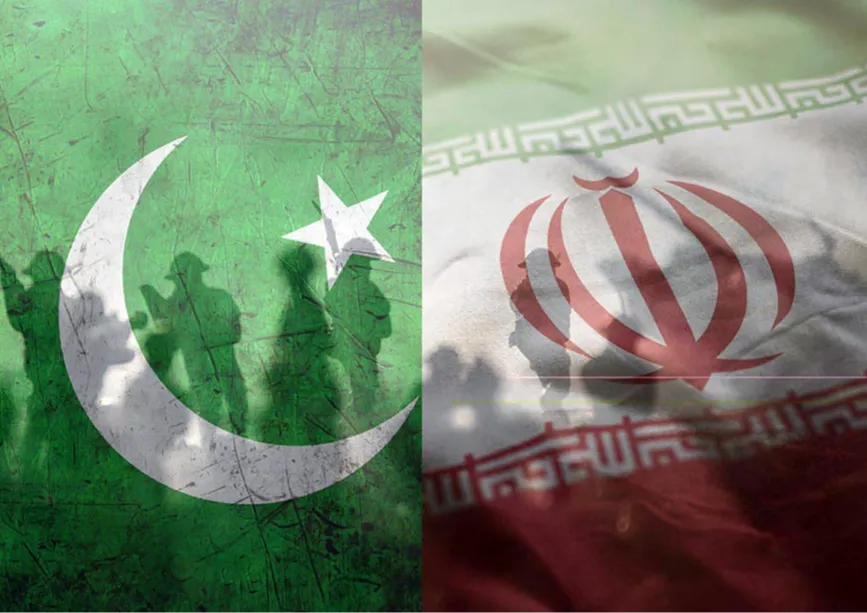International Conference on “Iran-Pakistan Academic-Cultural Dialogue,” academic leaders from both countries resolved to work together across a range of fields and use their shared academic and cultural heritage as a means of fostering deeper ties between their countries.
With the goal of strengthening scholarly and cultural ties for long-term Iran-Pakistan relations, the Higher Education Commission (HEC) and Allama Iqbal Open University (AIOU) organized the conference together.Dr. Seyed Abolhassan Navab, the founder and chairman of the board of trustees of the University of Religions and Denominations Qom, led a group of vice chancellors from six Iranian institutions that were welcomed by the institution.Senator Mushahid Hussain Syed, who was the primary guest at the concluding ceremony, stated that Pakistan and Iran have close linguistic, religious, and cultural ties.
After Pakistan gained its independence in 1947, Iran was the first nation to recognize the country. The Senator praised the Iranian people’s love of knowledge, independence, and hospitality toward the people of Pakistan as well as their tenacity as shown by the Iranian Islamic revolution.He expressed his gratitude to HEC, AIOU, and the Iranian side for a successful conference completion and expressed the hope that the two sides’ intellectual pursuits will further solidify their relationship.Dr. Mukhtar Ahmed, Chairman of the HEC, stressed in his remarks the urgent necessity for academic-cultural communication.
Congratulating everyone on the conference’s successful conclusion, he underlined the significance of concrete results. He predicted that the intellectual exchanges would result in actionable activities and that a plan for taking those actions as well as a way to monitor progress would be developed to ensure that the conference’s objectives are carried out in full.Dr. Mukhtar Ahmed outlined the common problems and limitations that Pakistan and Iran face and called for cooperation to find solutions “since no external party will address these challenges.”
He emphasized the need of working for humanity and urged action to close the gap in trust by eradicating prejudice and being open-minded. He praised the teams from AIOU and HEC for their hard work in planning the conference. During his speech, the Iranian delegation’ leader,
In order to boost economic connections and increase the amount of bilateral trade, he underlined the necessity of reducing the current economic burdens that stand between the two nations.He emphasized that in order to support one another economically, the two sides must step up their import and export operations. Vice-Chancellor Dr. Nasir Mahmood of AIOU expressed gratitude to HEC, participating vice chancellors, and faculty members from both nations for making the conference a success. He also expressed hope that the in-depth conversations that took place over the two days will result in concrete recommendations for many areas of higher education.
Two group talks on the topics of “Cultural Cooperation between Pakistan and Iran (Capacity and Opportunities)” and “Academic Cooperation between Pakistan and Iran (Capacity and Opportunities)” were discussed during the conference’s second day.
It was suggested in the first group discussion that an Iran-Pakistan Universities Center be developed in order to act as a focal point for partnerships between Pakistan and Iran.Universities in both nations would implement concrete measures, like faculty exchange visits and cooperative research initiatives, to promote faculty cooperation. The importance of universities in Pakistan and Iran evaluating their capabilities in specialized programs was underlined. It was also addressed how to create Iran Chairs in Pakistani institutions and Pakistan Chairs in Iranian universities.In the second panel discussion, the participants discussed prospects they saw for cross-cultural cooperation and came to the conclusion that it should go beyond simple language interchange.
They determined the following areas of mutual cooperation: drama, film, education, fine arts, and religious tourism. Strategic attempts to translate Urdu literature into Persian, as well as cooperation in festival celebrations, cultural exhibitions, film, theater, and other artistic endeavors, were highlighted by both parties. They emphasized the need for a change in university culture and proposed a strategic action plan with quantifiable outputs, well-defined collaborative outcomes, and precise timelines for successful outcomes.
